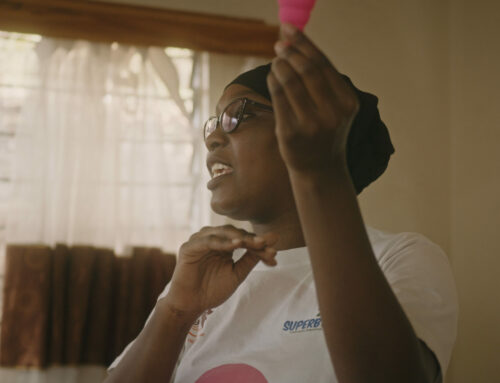On February 2nd, 2023, on the occasion of the International Day of Zero Tolerance for Female Genital Mutilation (FGM), a participatory event was held in Madrid in collaboration with Mundo Cooperante and with the support of the Ministry of Equality. The event aimed to provide a space to share experiences and best practices on how to talk about FGM and how to address survivors.
The first part of the event featured a panel of health professionals and agents of change moderated by Nicole Ndongala and composed of Immaculada Sau Giralt, Mbaye Gil Sánchez, Sulekha Ismail, Stella Ugwmba, Soledad Sánchez Hernández, and Koumba Sylla.
During the interventions, Sulekha expressed her opinion that not enough progress has been made in the fight against FGM and that support is needed to move forward. Immaculada, a pediatrician, emphasized the importance of giving space to talk and communicate about the issue of FGM and that change must be deep and gradual. Soledad, a social worker, emphasized that the problem lies in intervention rather than prevention, and that more training and recognition of FGM as gender-based violence is needed. Koumba, an intercultural facilitator who accompanies women in the same situation, highlighted the need for cultural mediators and informative courses on existing protocols. Mbaye, a nurse, mentioned the lack of academic training and willingness to understand the situation of affected women. Stella, who participated in the CHAIN project, emphasized the importance of training personnel in health centers and social services to be able to help the survivors who arrive.
Regarding the medicalization of FGM, Immaculada emphasized that it makes no sense to practice it in surgical settings and that women’s sexuality should be put at the center. Asha expressed her concern about the use of infibulation to obtain asylum.
An intervention by a psychologist highlighted the need to talk about empathy, training, and active feminism and anti-racism.
As for what is requested from the administration and the community, the need for legislative change, comprehensive and correct assistance, training to change the vision of women’s virginity and sexuality, community work, involvement of the administration, more mediators in institutions, and more information was emphasized.
In conclusion, in this first part, the importance of everyone’s participation in a dignified social transformation was highlighted, and the need for support and training to address FGM as a form of gender-based violence and improve the attention to survivors.
In the second part of the event, the importance of having journalists and activists as references in the fight against female genital mutilation (FGM) was discussed. The speakers highlighted the lack of representation of non-white people in the media and the need to avoid the single narrative and re-victimization of those interviewed. They also talked about the importance of focusing on the work of activists rather than just their story and the need to address FGM in the media throughout the year, not just on the International Day against FGM.
The speakers also emphasized the importance of addressing prejudices and biases in documentation and information before interviews. The importance of valuing the work and projects they are doing for the community and highlighting the capacity for change they have as empowered women was discussed.
The importance of introducing new topics and changing the way topics are approached through the inclusion of more women and gender editors in the media was also discussed. In addition, consumer education and the need to tell stories differently to focus on international issues were discussed




Leave A Comment